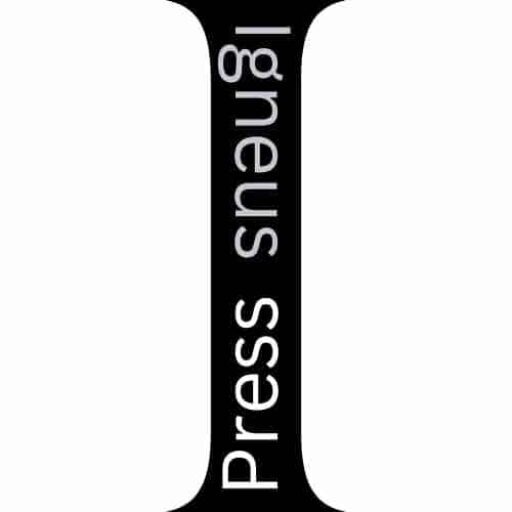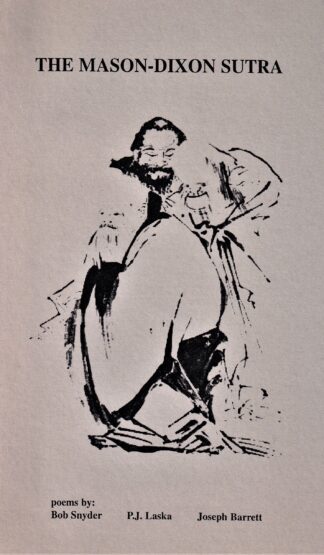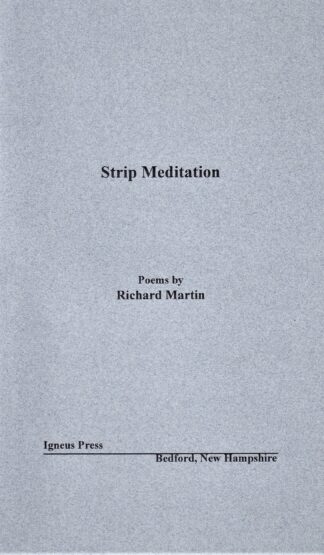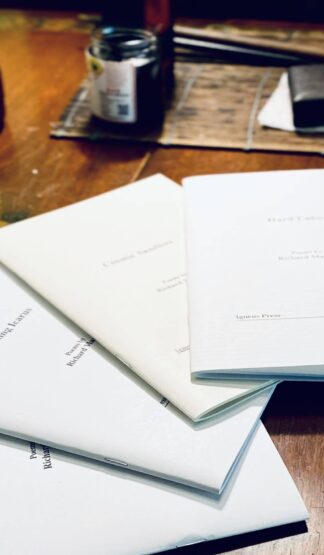Description
Steve Luttrell was born and continues to live in Portland, Maine. He is the founder and publishing editor of The Café Review, Maine’s iconic poetry journal. Paper Boats is his sixth collection of poems.
INTRODUCTION
Paper Boats, Steve Luttrell’s most recent book, contains eighty-six poems written with the beat of a musician’s ear and a painter’s eye, and covers a wide range of subjects, although there are two dominant themes that characterize his poetry. One of the main themes is the beauty and lushness of the natural world, represented in local rivers and landscapes, in “the great Atlantic Ocean” and the “rocky shore / where warships once were built,” and in seascapes that are at once watercolor and vividly cinematic, with seagull cries to the mournful strains of the foghorn in the background, or “a beach of sea-smoothed stones / and seaweed scented air,” and waves, tides, and tidepools glistening in the sunlight, teeming with microscopic life forms, and evoking memories of times past. There are skillful descriptions of the natural scene through a heron’s determination and patience to win a meal, in the rain-scented air anticipating a summer storm, in geese flying on a foggy November morning, in wind waves making random patterns through fields of brittle grass and the sound of those waves, on a rainy day, in the falling leaf that seems to be a butterfly, in the sun breaking through the fog and clearing the air, or in the contemplation of the moon. And the changes in nature through the seasons are beautifully depicted in a storm tide that swept away fishing huts, in the cold and ancient rain that falls forever, in the hardworking sun that demands no compensation, in the quiet morning after the night storm that relentlessly battered the house, shaking the windows and toppling the trellis, in the cold November wind that stripped the trees, in winter that is the poet’s jailer released by spring, or in the landscape changed by rivers flooded by spring rains. Reminiscent of Chinese and Japanese poetry, these poems of communion with nature also include reflections on life and the passage of time, the other dominant theme in Paper Boats. Self-awareness of the transitory nature of life, the passing of the fleeting moment through the forces of time and change that make that passing inevitable, and the certainty of death are expressed in two elegies and reflective poems that include various subjects: A self-portrait of the poet, the permanence of things beyond human life, the emptiness of existence, seeing life as a journey and a wandering, the notion of growing up as an ascent to a higher state of being, when in truth we do not grow up, only grow old. There are also memories of youth and nostalgia for childhood, when simple things were enough to fill a day, reflections on times past through the recollection of different memories and the description of places, people leaving, empty houses and a ghost town, or the awareness of the passage of time through the ever changing form of the poet’s shadow. Other themes include reflections on love and relationships, memories of past love, lost love, imagined or possible love, or the thought of love in old age, poems about the elusive nature of poetry, and poems of a philosophical nature with nihilist undertones about scenes from everyday life, family, social conventions and appearances, the numbness of constant noise and slogans in contemporary life, the dehumanization and greed of corporations resulting in the collapse of cities and city life, the never-ending wars, but also the possibility that:
Somehow in
a world becoming
world, possibility comes in.
In different voices done
in different tongues heard
a world becoming a world
where one can only
take what’s given and what’s left
and from these fragments
make a sense of self
becoming self.
—Daisy Zamora, San Francisco, May 22, 2024






